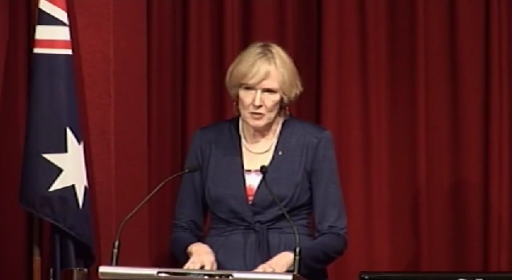Margaret MacMillan has delivered the Boeing Commemorative Lecture 2014 at the Australian War Memorial, where she argued that the First World War was not inevitable and that the origins of the conflict still “haunt us”.
The Professor of International History at Oxford University delivered the lecture entitled: Choice or accident? The outbreak of the First World War, where she explored the causes of the First World War, but duly acknowledged they remain hotly contested.
Based on arguments from her recent book, The War that Ended Peace: How Europe abandoned peace for the First World War, Professor MacMillan stated that war was by no means inevitable and that there were as many forces in Europe pushing for peace as well as for war.
She predicted that one hundred years from now, “someone will be standing [where I am], who’s just written a new book on the bicentenary of the origins of the First World War” and that it is unlikely there will ever be agreement about how the conflict came to be.
She warned that: “If we can’t come to a consensus on how it started, we may be left with the very uncomfortable feeling that it may just have been an accident – it may have been a mistake – and that I think worries us, not just because it happened in the past, but because it could happen in the present.
“I think we look at the First World War and we look at the origins of the First World War with shame, horror and a fear, I think… for the future”.
The professor continued that the causes of the First World War still “haunt us” because its “consequences have been so enormous”, stating that neither Fascism nor Bolshevism would have defined European events in the way they did in the twentieth century without the First World War.
She also called for people to “fight against” ascribing the First World War as an inevitably, as it leads us “in a sense, to give up”.
Rather, 1914 was a “perfect storm” of circumstances which made war more likely to break out.
Whilst avoiding the notion of “blame” during the lecture, Professor MacMillan explored the tensions that pushed Europe towards war and factors including the rise of nationalism, complacency that the crisis of 1914 would be solved as previous crises had been, and increasing globalisation, where “greater closeness did not necessarily bring closer friendship”.
The rise of peace movements was also given careful consideration, particularly amongst the working classes, who had “in their hands the capacity to prevent a general war” – namely through the withdrawal of their labour and refusal to fight. In this context, the growth in the vote for socialist parties in Europe was also assessed.
Indeed, two major disarmament conferences amongst the Great Powers took place in The Hague before the outbreak of the conflict.
Answering questions from members of the audience, she called the reported erection of a statue in Serbia of Archduke Franz Ferdinand’s assassin, Gavrilo Princip, a “sheer provocation”, which “obviously plays well in Serbia”.
Professor MacMillan also suggested that the divisions which still exist in Serbia as a result of war in the 1990s are likely to be “made deeper” as the country prepares to mark the Centenary of the First World War.
Posted by: Daniel Barry, Centenary News
